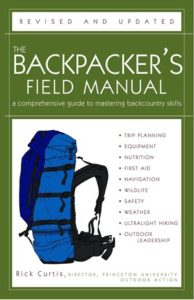Nautilus Insurance Company v. Jesse James Festival, Inc., et al., 2008 Mo. App. LEXIS 1215 (Court of Appeals, Western District of Mo., September, 2008)
Gary Newlun attended the “Bull Bash” Rodeo sponsored by the Jesse James Festival, Inc. (“Festival”), and participated in an event entitled the Circle of Fear. In the event, audience participants were asked to volunteer to put on a flack jacket, sign a release form, and enter a chalked circle in the arena. A rodeo bull would be released, and the last person in the ring would receive a $100 prize. Newlun volunteered, and won the event on the first day of the festival, but was “butted, kicked and thrown twenty feet” by the bull in his participation on the second day, suffering serious injuries. He later sued the Festival corporation, among other defendants, claiming that they were negligent in sponsoring the event, and thus liable for his injuries. According to the court, Newlun and the Festival agreed that Newlun’s recovery would be limited to “specified liability insurance coverage.”
Just before Newlun’s trial, the Festival’s general liability insurer, Nautilus Insurance Company (“Nautilus”), filed a Declaratory Judgment Action claiming that the liability insurance it provided for the Festival did not require it to provide a defense—or coverage—for Newlun’s claims or potential recovery. The lower court agreed with Nautilus in ruling that the policy did not require Nautilus to defend and indemnify the Festival for Newlun’s claims.
Newlun appealed the lower court’s ruling, claiming that the insurance did in fact cover his claims and any resulting recovery in his suit against the Festival. The Festival did not appeal the ruling (presumably because the Festival’s exposure was limited to insurance, which the court had declared did not apply).
The Nautilus insurance coverage had a few different aspects to it. The Festival had purchased a “Special Events” endorsement to specifically cover it for incidents occurring during the rodeo. Second, the Festival had renewed its “commercial general liability” (CGL) policy coverage. Unfortunately, the Special Events endorsement was in place for a rodeo occurring September 17-19, 1999, and the rodeo was ultimately held the week before that. The CGL policy was current and in force during the festival; however, among other exclusions, it contained a “sports participation exclusion” which modified the policy. It provided: “EXCLUSION — ATHLETIC OR SPORTS PARTICIPANTS”…excluded from coverage “‘bodily injury’ to any person while practicing for or participating in any sports or athletic contest or exhibition that you sponsor….”
In its ruling, the Appeals Court noted that Newlun was unable to even contend that the Special Events endorsement might provide coverage, because the Festival failed to update the dates on the endorsement when it held the rodeo a week early. Regarding the CGL policy, the Court found that the Sports Participation exclusion clearly applied to the circumstances surrounding Newlun’s injuries, and affirmed the lower court in denying coverage for the Festival. In interpreting the insurance policy language—and the exclusion in particular—the Court noted that it looked to the “plain meaning” of the words, and an interpretation “normally… understood by the average layperson” unless it was clear a technical meaning was intended. Applying other case law to interpret the exclusions, the Court found that Newlun was “injured” while participating in an “athletic or sports contest” “sponsored” by the Festival.
In this declaratory judgment action appeal, the Court doesn’t indicate whether Newlun was successful in recovering on his claim of negligence against the Festival. In fact, according to the opinion, Newlun had agreed with Festival representatives that his recovery (if any) against Festival would be limited to Festival’s liability insurance coverage. In light of the court’s decision to deny coverage under the Festival policy, even if Newlun was successful in his claims, there would be no insurance coverage to pay him. Apparently though, according to the Missouri Statute (R.S. Mo. 537.065) that allow these types of agreements, Festival had paid something to Newlun in exchange for an agreement to limit future recovery to the liability insurance coverage. Further, even though (under the agreement) Festival would be free from liability to pay Newlun’s recovery, Festival would certainly be required to pay its own defense costs, which were probably significant. Note that Festival knew it had some exposure, as Newlun claimed that Festival representatives had “‘plied’ him with beer for two hours in an effort to persuade him to participate in the event, and, therefore, his judgment was impaired when he signed the release.” Arguably, Newlun had an opportunity to claim that he was pressured into entering into the event and signing the release—a claim that could result in the lower court judge finding the release unenforceable.
The case isn’t clear, but it appears that the Sports Participation exclusion may have also applied to the Special Events Endorsement (as it was an endorsement to the underlying CGL policy). As a result, the endorsement may not have added much to the policy; raising the question of whether the endorsement was worth paying for anyway. Clearly, the Festival did not understand the nature of its coverage and how that coverage applied to its activities.
Discussion
We have seen other recent examples of insurance issues significantly affecting the outcome of litigation. In another Missouri case coming out the same day as Nautilus, a different court of appeals found insurance coverage ineffective for Gateway Hotels, stuck with a $13.7 million dollar verdict for injuries suffered by a boxer in a boxing tournament taking place at the hotel. Doug Hartmann Productions LLC (“Hartman”) had sponsored the tournament at the hotel, and in its written agreement with the hotel, had agreed to secure insurance for the boxing event. Although Hartmann secured liability and excess liability insurance, a “sports participation exclusion”—similar to that found in Nautilus—was found to apply to both policies, thus rendering the insurance worthless. Gateway Hotel Holdings v. Lexington Insurance Co., 2008 Mo. App. LEXIS 1273 (Court of Appeals, Eastern District of Mo., September, 2008).
In Behar v. Lloyd’s, et al., 554 F. Supp. 2d 1262 (Okla. U.S. Dist. Ct., April, 2008), purchasers (Behars) of a Water Park intended that existing liability insurance would transfer to them as part of the terms of their purchase of the water park. However, it appears they never actually reviewed the liability insurance policy. Just after the purchase was complete, a lifeguard died when he fell from a slide during an off duty party at the water park. The lifeguard’s family brought a lawsuit, naming the Behars as a defendant. In a separate action brought by the Behars against the insurance carrier (for failure to defend and indemnify them in the lawsuit) a court determined that, in fact, there was no effective assignment of the liability insurance, per a “no assignment” (without the insurer’s consent) provision in the policy. The Behars, in a settlement with the family of the deceased, were forced to declare bankruptcy—likely because they had no insurance coverage to defend and indemnify them for the claim.
How many organizations have really reviewed their liability insurance coverage to understand whether what they intend to be covered—really is? Does the organization understand the meaning of and scope of its policy, and importantly, language that may modify or change its coverage, contained in an exclusion or endorsement to the policy? The Nautilus case offers a sobering example of an organization that attempted to secure coverage, but didn’t follow up, or take the time to understand the meaning of an important exclusion that directly applied to its rodeo activities. The Gateway and Behar cases raise similar problems.
Important issues also include, for example:
1) notifying your insurance carrier if your organization expands into new activities and understanding any coverage issues;
2) having an insurance carrier who really understands your business, and can steer your organization to coverage that matches what the organization really needs to have in place (the ‘cheapest’ is by no means necessarily the ‘best)’;
3) developing a good working relationship with your insurance carrier – to assist your organization whether or not a claim is filed;
4) if you are asking other organizations to add your organization as an “additional insured” on a liability policy – confirming that has actually been done, and understanding whether the other policy will actually cover your organization for the activities you contemplate.
Importantly, consider having informed legal counsel work with your organization and your insurance representatives to review your insurance policies and assist in identifying and resolving any coverage issues or concerns.
There are many other issues to consider in addressing your organization’s insurance needs and coverage issues.
The Recreation Law Center Terms of Use
All material provided on The Recreation Law Center are for general reference and are not intended as legal advice. Recreation and adventure providers should work with experienced legal counsel, including counsel licensed in their jurisdiction, to advise them on how developing case law or legal issues may impact matters specific to their operation and applicable state laws.
The information provided here is for paid subscribers to The Recreation Law Center only. This material is proprietary and copyrighted by the authors and may not be reproduced in any format. Please respect the work that the authors have put into this resource.


